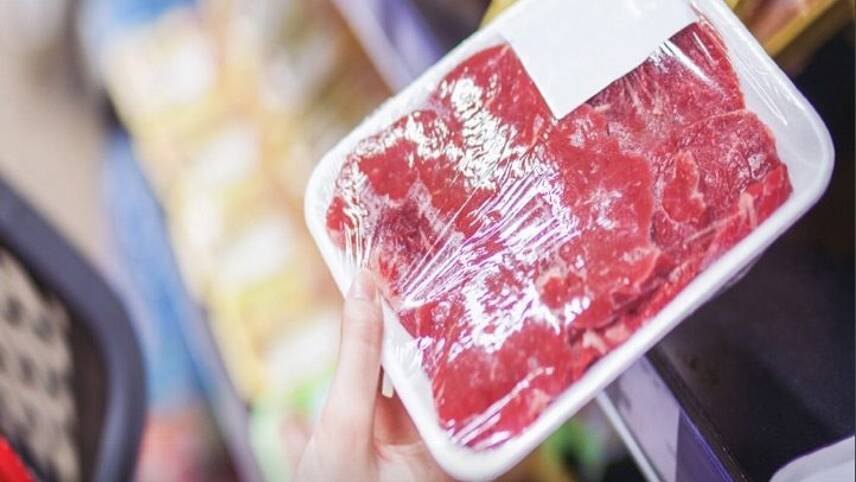Register for free and continue reading
Join our growing army of changemakers and get unlimited access to our premium content

The meat sector is widely regarded as a key contributor to emissions and one of the world's most exposed sectors to climate risks.
The new pledge for the UK industry, ‘meat in a net-zero world’, is being co-ordinated by non-profit WRAP, as an offshoot of its Food Waste Reduction Roadmap scheme.
Its aim is to prevent more than 150,000 tonnes of meat from being wasted in the UK every year, equivalent to 27% of the total amount sent to landfill on an annual basis. This waste costs the national economy £1.5bn and is a contributor to greenhouse gas (GHG) emissions, given that meat is carbon-intense to produce in the first instance and that food waste gives off GHGs in landfill. Recent research from OurWorldInData found that 6% of global annual GHG emissions are attributable to food waste, and a further 26% to other parts of the food value chain.
The ‘meat in a net-zero world’ pledge has been signed by all major grocery retailers – including Tesco, Sainsbury’s, Asda, Morrisons, Lidl, Aldi, Marks & Spencer and the Co-op – along with meat processors, hospitality and foodservice giants. In total, 38 businesses have signed – a cohort collectively responsible for 80% of the UK’s meat production.
Trade bodies including the National Farmers Union (NFU), Agriculture and Horticultural Development Board (AHDB), British Meat Processors Association (BMPA), British Poultry Council (BPC), British Retail Consortium (BRC), Hybu Cig Cymru (HCC), National Pig Association (NPA), Quality Meat Scotland (QMS) and the Sustainable Restaurant Association (SRA) have also pledged their support.
In order to meet the initiative’s headline target, signatories in primary production are being supported to join the UK Roundtable on Sustainable Soya and the UK Cattle Sustainability Platform, given that these are two key causes of emissions. Processors, meanwhile, have agreed to join WRAP’s Food Waste Roadmap and implement ‘target, measure, act” processes to cut food waste. Retailers will be supported to develop packaging solutions that extend the shelf life of meat products, to optimise stock levels and pack sizes, and to better food redistribution efforts, while hospitality and foodservice firms will work with WRAP to identify why meat products are wasted.
Given that the majority of meat wasted in the UK annually is binned at home – as is the case with other kinds of food waste – businesses are also expected to support communications campaigns that raise awareness of household food waste and offer solutions for consumers.
WRAP’s director Peter Maddox said the initiative “has the potential to become a blueprint that other nations will emulate”.
“I am delighted that despite the incredible pressure the sector is under keeping the nation fed, organisations remain committed to the ambitious sustainability goals laid out in Meat in a Net Zero world, and that WRAP could help industry develop and launch such a bold strategy,” Maddox said. “It is key that the focus is on every link in the supply chain from production, processing and sale, through to the customer – whether they are eating in or outside of the home.”
A sector under pressure
The meat sector has been facing pressure from green groups and animal rights activists for many years now and, as legislation on these issues tightens and the global alternative protein market booms, investors have issued repeated warnings that the sector is becoming too risky to hold in their portfolios.
The Covid-19 pandemic has proven a particularly challenging time for the meat sector. Many grocery stores have been increasing orders in recent months, while contracts with businesses required to close temporarily in line with lockdown restrictions have been paused. As a result, Smithfield, Tyson and Sanderson Farms, four of the largest meat processors globally, saw share prices plummet by 25% between January and the end of May.
Within the same period, major Covid-19 outbreaks were being linked to meat processing facilities and abattoirs in the UK, US, Germany, France and Spain. Investor network FAIRR recently published a pandemic risk ranking of the world’s 60 largest meat, fish and dairy firms, in which 44, collectively worth $220bn, were graded as “high-risk”.
Now, FAIRR has published an update to its 2017 White Paper on “livestock levies” – increasing carbon prices and taxes which are set to be applicable to all sectors in the coming decades, plus planned legislation which would specifically target the meat sector.
The update claims that in a high-tax scenario, whereby the carbon price for the meat sector reaches an average of $53 per tonne in the USA and Europe by 2050, the world’s 40 largest meat firms will collectively pay $11.6bn by mid-century. This is equivalent to 5% of their revenue within the same period – a proportion which could significantly undermine their profitability.
“In the post-COVID landscape, there is a risk that governments may stop subsidising animal agriculture and start taxing it instead,” FAIRR founder Jeremy Coller said.
“There’s increasing consensus that we cannot achieve the Paris Climate Agreement unless we deal with factory farming – a sector emitting more greenhouse gases than all the world’s planes, trains and cars put together,” Coller, also chief investment officer at Coller Capital, added. “That’s driving gathering momentum in policy circles to apply carbon taxes to the meat industry.”
FAIRR’s report highlights the New Zealand Government’s recent decision to measure and price emissions from farms from 2025, stating that this signal will likely cause other regulators to follow suit. Indeed, greens and socialist lawmakers recently backed calls for the retail price of meat to be adjusted to reflect the environmental costs of its production. Here in the UK, the Committee on Climate Change is proposing a mix of incentives and taxes to align the agri-food sector with net-zero.
Sarah George


Please login or Register to leave a comment.